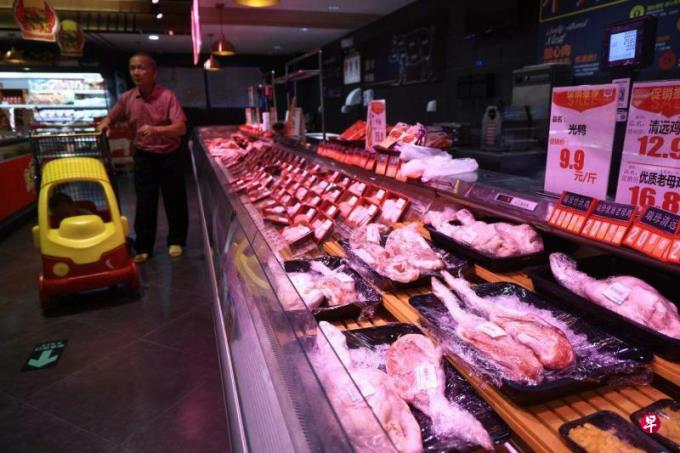
China ’s consumer price index has declined for the second consecutive month in November, the largest decline in three years.The interviewed economists pointed out that the pressure of China's currency tightening is increasing, the weak recovery of the economy in the third quarter has reversed significantly, and the recovery intensity has become weaker.
The data released by the National Bureau of Statistics of China on Saturday (December 9) showed that the National Residents' Consumption Price Index (CPI) decreased by 0.5%year -on -year, a decrease of 0.3 percentage points from the previous month; and 0.5%from the previous month.This figure is higher than the forecast of economic divisions surveyed by Bloomberg and Reuters, the largest decline since November 2020.
Dong Lijuan, chief statistician of the City Division of the Statistics Bureau, interpreted that the decline in CPI in November was affected by factors such as food and energy price fluctuations.The core CPI of food and energy prices rose by 0.6%year -on -year, and the increase was the same as last month, and continued to maintain a gentle rise.
Falling price is a precursor to shrinking.In other countries in the world, this year has been working hard to deal with the rapid rise in living expenses, trying to try to suppress inflation, but China is facing the opposite problem of falling prices.
Tong contraction may lead to a spiral decline in economic activities, exacerbating the risks facing the Chinese economy.Consumers will suspend shopping due to expected prices to curb consumers.Due to uncertainty in future demand, enterprises may reduce production and investment and reduce employees, worsen the employment situation, and cause consumers to consume a more cautious vicious circle.
China ’s industrial producer’ s factory price index (PPI) in November decreased by 3.0%year -on -year, a decrease of 0.3%month -on -month, and declined for 14 consecutive months.
Wang Jun, chief economist of Huatai Assets, pointed out in an interview with Lianhe Zaobao that the overall price decline of terminal consumption and upstream industry in November exceeded expectations, which reflects that the current situation of China's low prices has not been completely reversed.The chain confession is too demand.
Chinese consumer prices are weak this year, and CPI has continued to fall year -on -year.In July, the CPI fell into the negative range, which was again in negative growth since February 2021; in August, it was negative to positive;In October, the CPI decreased by 0.2%year -on -year, which was negatively increased after two months.
In Wang Jun's view, the recovery of China's CPI for the past few months is temporary, and it does not mean that the trend of downturn has changed.He said: "China is still suffering from shrinking, and has not got rid of such a situation. This is a question that the official must face up."
The Chinese economy has faced multiple unfavorable factors this year, including the increase in local government debt, the downturn in the real estate market, and the sluggish demand at home and abroad.Bloomberg Economist predicts that without sufficient stimulus measures to boost the downturn's real estate market, China's shrinkage risk will continue until next year.
There are signs that the Chinese government will strengthen financial support next year to promote economic recovery and revive investor confidence.According to Xinhua News Agency, the Politburo of the Communist Party of China held a meeting on Friday (December 8) to study the economic work next year, emphasizing that it is necessary to adhere to the general tone of stability and progress, strengthen the cycle and cyclical adjustment of macro policies, and continue to implement positive fiscal policiesAnd stable monetary policy.
Wang Jun believes that the fiscal stimulus policy will be an important part of China's policy goals next year.He pointed out that the Politburo meeting emphasized that fiscal policy must be "moderate forces, improve quality and efficiency", which means that the official will strive to master the balance and take into account the interests of all aspects.For inflation.
The Chinese State Council added 1 trillion yuan (RMB, about 186.7 billion yuan) of Treasury bonds in late October to better implement active fiscal policies.
Considering that this year's fiscal deficit has risen to 3.8%after the issuance of government bonds, Wang Jun suggested that the official will set the deficit rate next year to about 3.8%to 4%."" ".




